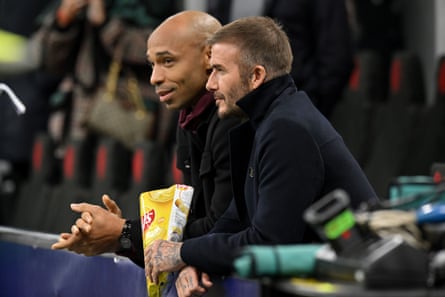How was Euro 2024 for you? Exciting, disappointing, fun, all right, intriguing tactically, a waste of environmental resources? There is a whole world of valid responses to that rather banal question. Though for those football fans you see in adverts, for whom the Euros was a busy time, what with ads for TVs, betting, specs, hybrid vehicles, Scottish fizzy drinks, sportswear, holidays, razors and – with Sir Geoff Hurst leading the charge in the no-nonsense style that made his name – beer, any answers would be less expansive.
Television, radio, internet, YouTube and even dear old magazine and newspaper adverts have been dotted with depictions of the football fan. You will recognise the type. Usually male, though advertising researchers have now recognised football attracts a significant female audience. Usually white, too, though again, some semblance of diversity has been addressed. Beyond embracing such modernity, they will almost certainly be wearing a replica shirt and their emotions remain a binary equation.
In the advertising alternate universe, a football fan can only oscillate between cheery and desolate. Most of the time, being a bovine animal and easily pleased by, say, a two-for-one pizza offer or cheaper holiday insurance, cheering in unison, in the manner probably best recalled from the audience in Fantasy Football League whenever David Baddiel and Frank Skinner cracked a funny, is the response to just about everything. The desolation is saved for defeat, a shared moment of disappointment – with a few loud boos chucked in – though that can be often lifted by a slice of that discount pizza or a swig of premium beer. Drunk responsibly, naturally.
Where footballers themselves are shown as near-superhuman, impossibly handsome as they shave their faces while espousing high-performance philosophies, even Jack Grealish managing to style out a mayonnaise advert cameo, a supporter can never be so sophisticated. If a Robert Altman, cinéma vérité depth of characterisation is unrealistic, perhaps the ad industry might one day address that football pulls in the widest spread of society. Walk down a Saturday train headed for a Premier League match, and you could chat to circuit judges one minute, petty criminals the next, and all walks of life in between.
When David Beckham, the capo dei capi of advertising, and Thierry Henry, who succeeded Papa et Nicole in punting Renault cars, were sending themselves up in a recent, desperately cheesy commercial for Lay’s potato crisps, fans at San Siro were used for their cheering capabilities alone.
“Henry, Beckham and [Lionel] Messi bring so much authenticity to what they do, and we know consumers respond to them both on and off the field,” said Ciara Dilley, global VP of Lay’s as that campaign launched. “The three all exude positivity, fun and joy, all things that Lay’s brand represents.” For all that trio’s achievements, glamour and undoubted marketability, such a view is highly unlikely to be universally shared by supporters. The advertising world chooses to skip around football’s deep-seated rivalries and tribalism except when it suits to monetise the passion and loyalty dollar.

Broadcasters can be especially guilty of attempting to patronise a homogenous collective while acting against that group’s interests. Sky Sports’s 1996 advert, featuring the South Yorkshire tones of a gesticulating Sean Bean, hit this hardest with: “It’s ecstasy, anger, joy and despair. It’s theatre, art, war and love. It should be predictable but never is. We know how you feel about football, because we feel the same.” The fans who found themselves in a distant part of the country on a Monday night as their team fulfilled a Sky TV engagement may have disagreed with the latter part of that statement, a situation that continues today.
During the Euros, Sky’s latest innovation for the coming season, Sky Sports+, a channel on which the broadcaster’s extended EFL portfolio will be housed, was on the heaviest of ad rotation. The ad features a crowd engaging in an ensemble performance of the champion power ballad Up Where We Belong and became an unwelcome ear worm.
after newsletter promotion
Replacing Joe Cocker and Jennifer Warnes is a varied if stereotyped collection of fans, taking a line each in sharing moments of passion, as the message of more football all the time is delivered. That this new deal will mean, to quote EFL documentation, “approximately five matches on a Saturday lunchtime and frequent slots on a Friday night and Sunday afternoon”, and the continuing slow death of the traditional 3pm Saturday kick-off is not addressed during the advert. If advertising is based on one thing, “happiness”, as Mad Men’s Don Draper put it, then reality is among the first casualties, particularly for football supporters who, with ticket price rises for the majority of Premier League clubs next season, are among the most abused consumer groups in society.
Considering a reported 24.2m viewers watched the Euro 2024 final across the BBC and ITV, against an estimated 28.9m voters in the UK election, football supporters surely demand far better representation than the cheering, jeering cardboard cutouts the advertising industry so blithely persists with.
-
Do you have an opinion on the issues raised in this article? If you would like to submit a response of up to 300 words by email to be considered for publication in our letters section, please click here.
Source: theguardian.com


